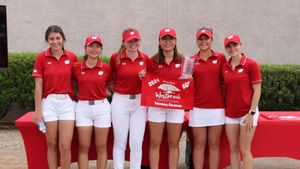Farmers across France are once again raising their voices, demanding significant policy changes due to the mounting pressure of high taxes. This protest echoes the sentiments raised during last year’s Paris Agriculture Show, where French farmers took to the streets, showcasing their grievances with the Macron government. Although the atmosphere appeared calmer this year with President Emmanuel Macron's attendance, the calls for greater recognition of the agricultural sector remain strong. A spokesperson for the protesting farmers noted, "Calls for policy changes and greater recognition of the farming sector persist," highlighting the persistent challenges faced by the industry.
Meanwhile, French Prime Minister François Bayrou finds himself under increasing scrutiny amid allegations related to abuse at the Notre-Dame de Bétharram school, where he previously had connections. The judicial investigation was opened following serious accusations of rape and sexual assault against a former employee of the school. Critics have stepped forward, claiming Bayrou and his wife ignored warnings of abuse for years. This reflection on accountability and leadership within educational institutions raises pressing questions about the role of public figures. The details surrounding these accusations are alarming and add to the growing concerns about oversight within French institutions.
Adding to the complexity of the current political climate, far-right leader Jordan Bardella engaged with Israel’s Diaspora Minister Amichai Chikli during the recent CPAC conference held in Washington. This meeting marks a significant moment as it breaks long-standing diplomatic taboos surrounding relationships between Israel and the French National Rally, the party originally founded by Jean-Marie Le Pen, whose ideologies have historically aligned with far-right sentiments. Chikli's decision to meet with Bardella has sparked discussions about the shifting allegiances and the neighboring nation’s increasingly tense political environment.
Bardella described the discussions held with Chikli as "fruitful," with both parties addressing matters such as Franco-Israeli relations and their shared fight against antisemitism. This cooperation seemingly solidifies Bardella's position as he navigates the complex political waters of both France and Europe. He emphasized the importance of developing joint projects with other far-right parties, reflecting the National Rally’s ambitions on the continental stage.
Yet, Bardella’s recent political engagements included controversial elemnts. Following Steve Bannon’s appearance at the same conference, Bardella distanced himself from the US strategist’s provocative gestures, stating, "While I was not present...one of the speakers allowed himself, as a provocation, a gesture referring to Nazi ideology." Such comments underline the challenges faced by political leaders attempting to tread the fine line between asserting their beliefs and mitigating fallout from extremist associations.
France’s agricultural sector has long been entwined with national pride and cultural identity, but it appears to be at odds with the government’s current policies. Farmers argue they face insurmountable tax burdens, crippling their ability to operate sustainably. With the backdrop of upcoming elections and growing discontent, the calls for policy reform shout louder than ever.
While the agricultural community pushes for change, the Prime Minister grapples with demands for accountability following the revelations surrounding the Notre-Dame de Bétharram abuse case. Both situations illuminate the stark realities and accountability expected of leaders, particularly those involved with vulnerable sectors. Bayrou’s past associations have come under severe criticism, and the potential ramifications for his standing with the populace are considerable.
Returning to the far-right's rise, Bardella’s leadership of National Rally, along with his recent discussions with Israeli dignitaries, indicates significant shifts within European political dynamics. Under Marine Le Pen's leadership, the party has endeavored to revamp its image by distancing itself from its troubling past. With 11 percent of the French population identifying as Muslim, the rhetoric surrounding national identity and immigration continues to polarize debates, with Bardella’s party at the forefront of these discussions.
These events cocoon together, presenting overlapping narratives concerning France's social and political fabric. Farmers pushing for reform echo calls for fair representation, whereas the abuse scandal illuminates the urgent need for accountability within educational systems. At the same time, the rise of far-right politics, actively engaging with international partners, signifies troubling trends as they galvanize support for their ideologies at home and abroad.
What happens next for these intertwined political narratives remains to be seen, but as the country approaches future elections, the outcomes of these protests, scandals, and international relationships will undoubtedly shape France's political identity going forward.



